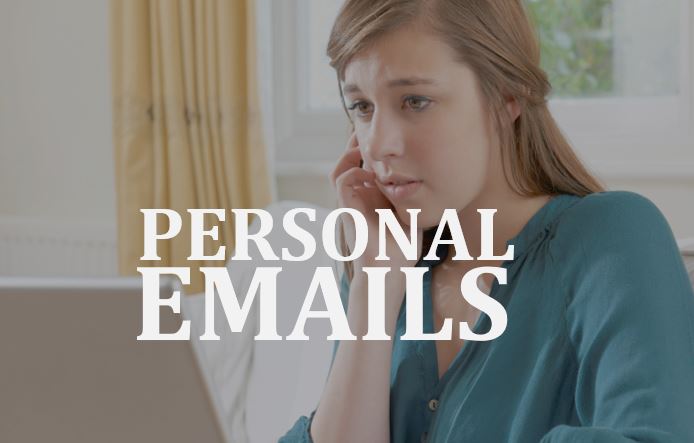Divorce proceedings can sometimes get ugly.

“I’m in the midst of a messy divorce, and my soon-to-be ex is convinced I had an affair. He says he’s going to subpoena my personal emails to prove it. I’m not having an affair, but I don’t want him to have access to all my personal emails, regardless of what’s in them. Should I be worried?”
Probably not.
While it’s not unusual for work-related emails to be subpoenaed in the event of a criminal investigation, subpoenas to a third party (such as an ISP or email services provider) in civil and family are hardly ever sought because of the difficulty in obtaining them and their questionable relevance to any issue in a family law matter. Sometimes police records are subpoenaed for motor vehicle accidents and CAS case files are requested for family cases, but emails are rarely sought in family law cases.
One exception might be if your ex was contending that you were hiding financial assets relevant to the divorce settlement and made the case that your email communications were the only or best way to prove this. However, in the situation you describe, it’s unlikely that his lawyer would be requesting a subpoena or that the judge would grant one.
“What about my confidential email communications with my lawyer?”
Emails between you and your lawyer are protected under solicitor-client privilege just like all your other communications with your lawyer. However, emails aren’t 100% secure: Your email provider’s servers could get hacked; someone with a bit of technical knowledge could intercept them; or an unnoticed auto-complete in the address field could send your email to the wrong recipient (we’ve all done that from time to time). However, communications between you and your lawyer are still protected and are inadmissible in court.
Additionally, some security experts will tell you that if you are working ‘in the cloud’ and you happen to be using a cloud server located in the United States, your data could be accessed by the US under the Patriot Act. It may lose protection in the US but Canadian courts would still have to respect privilege. While I have not encountered any situations in which this has been an issue in Canadian family law, our practice is not ‘in the cloud’ and our servers are located in Canada. Like most lawyers, I tend to err on the side of caution.
More questions? Don’t hesitate to contact us.
This blog is provided for educational purposes only and should not be construed as specific legal advice. This blog should not be used as a substitute for competent legal advice from a licensed lawyer in your province.
